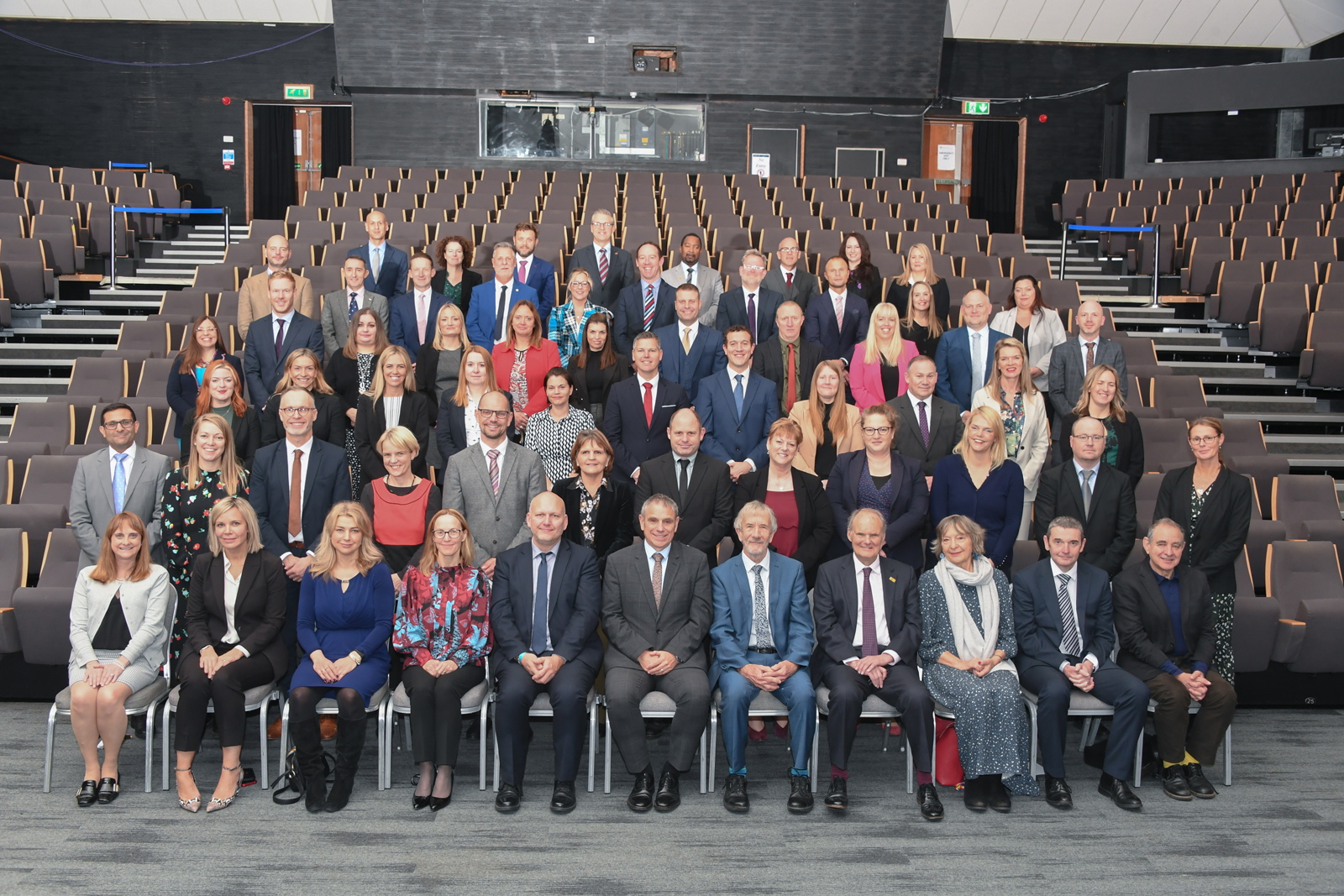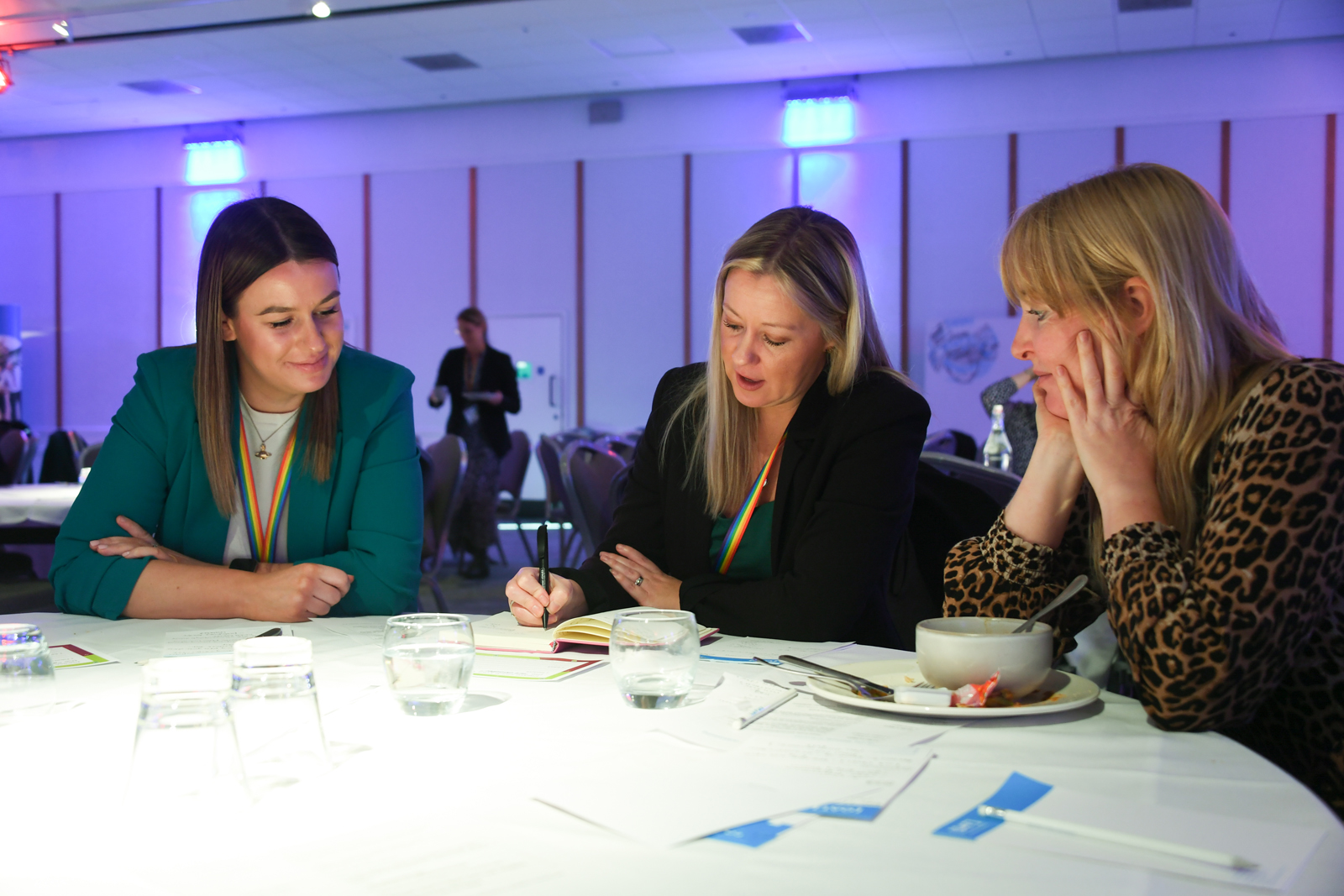See below for the workshop sessions that took place during this year’s conference.
Principles of teaching
Ambition for all.
Workshop 1: The challenge of Year 7: is it enough?
Synopsis: This workshop offers insight into the demands of the primary curriculum and SATS preparation; sharing examples of high-quality work produced by Year 6 children in order that secondary colleagues can build on this in Year 7 and beyond.
Host: Lauren Kirk, Year 6 teacher at Ormiston South Parade Academy.
Climate for success: creating the right conditions for deep learning and flourishing.
Workshop 2: Lessons from an outlying planet
Synopsis: This workshop offers us chance to learn from our special school colleagues about making connections on a soulful level, sparking awe and wonder, celebrating differences and bringing joy to the classroom.
Host: Emily Webster, co-principal at Thomas Wolsey Ormiston Academy
Workshop 3: From routines to habits – the key to reducing cognitive load and improving behaviour
Synopsis: This workshop delves into the profound impact of classroom routines in shaping habits and social norms that drive improved behaviour and reduce cognitive load. A case study from Ormiston NEW Academy will allow you to gain insights, tools, and good practices of how to create an environment where students can truly flourish and reach their full potential.
Host: Debbie Kinsella, behaviour lead practitioner, and Laura Wilkes, vice principal at Ormiston NEW Academy.
Intellectual preparation: teachers are experts and are passionate about what they teach, how they teach it and who they are teaching.
Workshop 4: Crafting a curriculum that delivers a true learning journey: keeping the conversation going
Synopsis: An opportunity to reflect on your current curriculum offer and to share strategies for driving continuous improvement in curriculum design and implementation.
Host: Hazel Walker, vice principal at Cowes Enterprise College, An Ormiston Academy
Workshop 5: The language of curriculum and how it matters: substantive and disciplinary knowledge and more
Synopsis: In this workshop we will explore some of the language of knowledge and curriculum and look at how robust curricular thinking impacts many of our actions in school.
Host: Jemma Sherwood, senior lead practitioner (maths).
Workshop 6: Success for all children: how to develop a curriculum that enables children with high needs to flourish
Synopsis: We know that teachers must adapt teaching to respond to the strengths and needs of all children, but this can be hugely challenging when there can be a wide variation in abilities and needs in any one class. Curriculum planning for all leads to inclusive classrooms for all, but teachers often feel this means multiple personalised plans, which they simply don’t have time to produce. This workshop will provide guidance on how to conceptualise the curriculum as a driver for inclusion without the need for multiple adaptations and will seek to answer the question: how do I take a curriculum goal and make it into a plan that responds to the variability of my class so that everyone can achieve success?
Host: Jane Nolan, director of inclusion.
Adaptive teaching: excellent preparation ensures that the ambitious curriculum is made accessible and challenging for all children; teachers know children well and understand their needs and talents.
Workshop 7: Leading adaptive teaching
Synopsis: Great adaptive teaching is transformative, but it can be hard for teachers to implement in the classroom and even harder to lead across a school. And yet adaptive teaching is at the very heart of our ambitions and our mission as great teachers and leaders within OAT. This session will draw on evidence and practice from the SEND and teacher development sectors to provide models and tools for leaders to use for CPD, teacher development and school self-evaluation so that we can help teachers to make the greatest difference for all children.
Host: Naomi James, SEND lead practitioner and Gary Seal, senior lead practitioner: teacher development.
Ambitious communication: carefully sequenced instruction ensures new knowledge and skill are acquired quickly; children are highly engaged because learning is made memorable and meaningful.
Workshop 8: Developing the language of academic success through structured discussion
Synopsis: In order for students to be academically successful they need to be fluent in the language of academic success. For students from less privileged backgrounds, the only way this fluency is likely to develop is if teachers provided structured opportunities for students to use academic language to discuss academic concepts.
This session will include a live lesson in which David Didau will model using structured discussion with a group of Year 10 students from Ormiston Ilkeston Enterprise Academy.
Host: David Didau, senior lead practitioner (English).
Purposeful practice: with guided practice and rehearsal, children become more confident, more fluent, and more independent to consolidate learning and apply in new situations.
Workshop 9: Using independent practice to accelerate student learning
Synopsis: Practice is an integral part of effective teaching. In this workshop we will look at common pitfalls which can limit the effectiveness of this crucial phase of the lesson, before moving on to establishing the key principles of purposeful practice and evaluating how best to utilise these to accelerate student learning.
Host: Tom Pinkstone, lead practitioner (English).
Checking for understanding.
Workshop 10: Assessing children’s understanding through excellent classroom practice – strategies for success
Synopsis: With the concept ‘no child leaves the classroom with a misconception’, this workshop will focus on diagnostic strategies that secure students’ understanding. It is vital students have a depth of knowledge and a clarity of potential misconceptions to secure their understanding and build upon long term memory models for future success and learning.
Host: Nikki Johnson, vice principal at Ormiston Chadwick Academy.
Please note, unfortunately workshop 11 will no longer be taking place. We apologise for any inconvenence.
Workshop 11 : How to support children with feedback that moves learning forwards
Synopsis: In the context of student feedback, fostering a culture of meaningful communication is crucial. In this workshop we will be considering that by providing specific and timely input on their progress, educators empower students to take ownership of their learning journey. This facilitates a dynamic learning environment that encourages continuous growth and development, ultimately leading to enhanced academic and personal success.
Host: Caroline Whittaker, headteacher and SIAMS trust-lead, Magna Learning Partnership.
Other
Leading teaching and learning.
Workshop 12 (for govenors): Quality assurance of teaching and learning
Synopsis: TBC.
Host: Eleanor Martin, head of people development, and Nicola Bull, education director.
Ensuring CPD has an impact
Workshop 13: Ensuring CPD has impact
Synopsis: Continuing professional development programmes not only help educators to keep pace with the current standards of others in the sector, but also ensures that school staff and teachers can deliver high-quality teaching and impact positively on pupil outcomes. With teacher workload and school improvement in mind, this session draws on the EEF’s guidance to unpick what makes great CPD in your own context and uses Ormiston SWB as a case study to share good practice.
Host: Kieran Ellement, vice principal at Ormiston SWB Academy
Workshop 14 (for primaries):
- Memory ideas for systematically shaping knowledge
- Curriculum planning through encode, store, retrieve
- Study skills and developing metacognition
Workshop sessions: 2 and 3
Synopsis: TBC
Resources: The following resources should be read pre-conference:
Host: Ross McGill, Teacher Toolkit.
Workshop 15 (for governors): Exclusions with a focus on students with SEND
Synopsis: TBC.
Host: Sunita Yardley-Patel, head of governance

